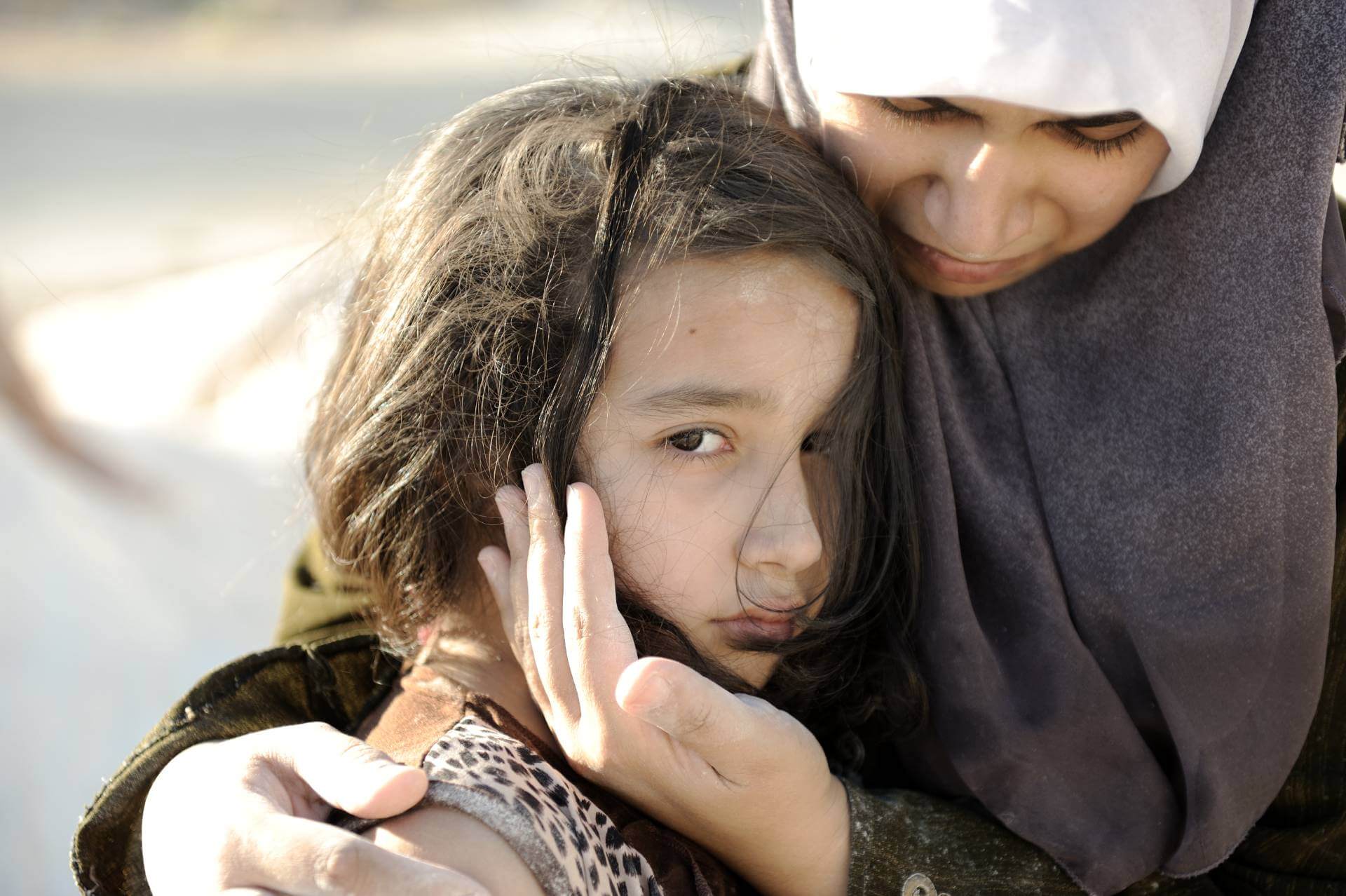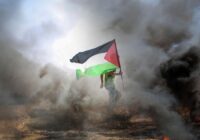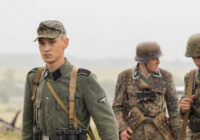Like many in North America in the 60s and 70s, I misspent my youth watching a lot of TV shows and movies. And, good or bad, what I saw helped shape my views on many issues. I formed irrelevant opinions — such as that Dracula looks like Christopher Lee; that cowboys are all introverts and live near the Rio Grande; and that British spies are always devastatingly attractive (even when they look like Daniel Craig).
I also formed relevant ones. TV made me believe that there were no black or brown people who fought in WW2, that it’s important for a woman to look pretty and that America is always on the side of good.
TV also shaped my views on Jews as the ultimate persecuted people. Movies such as The Diary of Anne Frank, Exodus, The Ten Commandments and Fiddler on the Roof (with great music to boot), as well as the Holocaust mini-series all helped to imprint in my mind and heart that European Jews were victims like no other. Ergo, it was only right that they be given a homeland where they would be safe. The critical detail of where that homeland should be, why it should be in Palestine, or the inconvenient truth that that land was already inhabited by a people, was not shown in the movies — and so that aspect didn’t enter my consciousness.
Through such movies and TV shows, I came to know endearing Jewish characters — like Mr. Hooper on Sesame Street, Rhoda Morgenstern in The Mary Tyler Moore Show and Alvy Singer in Annie Hall, as well as numerous comedians, including Joan Rivers, Gilda Radner, Rob Reiner, Woody Allen and Mel Brooks — all funny, all benign. I did not see or know any Palestinian characters or actors.
Through these movies and shows, I came to know elements of Jewish culture — festivals like Yom Kippur, Hannukah, Rosh Hashanah, Passover; Bar and Bat mitzvahs; the concept of kosher food; and observing the Sabbath. I did not know anything about Palestinian or even Islamic culture.
In my youth, I never saw any movies or TV shows about Palestinians. The stories of Palestinians were not shown on our screens in any form. We only saw them briefly on the nightly news, shouting and throwing stones at our ultimate victims, the Jews — and we wondered why they were being unnecessarily troublesome. We had no context for them, no understanding and, therefore, no sympathy.
The story changes when you get away from the television
Having come the 80s and to university, I did wonder why some students were walking around with an attractive black-and-white scarf around their necks — but only briefly. Worries about my organic chemistry course quickly pushed that out of my mind.
During the 90s, I moved abroad and didn’t have much access to English TV and movies. I began to read more widely. I stumbled onto a book by Edward Said (a Palestinian American and professor of literature at Columbia University in New York), which had readings about his theory of Orientalism as well as his essays on Palestine. So finally, in my late thirties, my eyes were opened to the fact that there was another side to the Zionist issue. I read more and became more informed on the Palestine situation.
During my later years, I also watched movies showing other groups who had been victimized, like The Battle of Algiers about oppressed Algerians rising up against their French colonial masters and Lawrence of Arabia about Arab communities trying to gain independence from the Ottomans and British. Like The Killing Fields about the genocidal Khmer Rouge regime in Cambodia and Cry Freedom about South Africa’s oppressive apartheid system. Like Gandhi and After the Rains, both about the freedom struggle of Indians against British rule. Through these movies, I learned that European Jews were not the only victims in the world; other groups had also suffered.
Then, I searched for, found and bought movies about another group of victims: Palestinians. A few movies. None in the mainstream, but rather in the realm of art movies. Like Lemon Tree, based on a true story of a Palestinian widow in the West Bank trying to protect her little orchard of lemon trees from the Israeli defense minister. Like Salt of this Sea, about a Palestinian American who returns to Palestine to face its harsh realities and her own anger. Like When I Saw You, about a Palestinian son and mother living in a refugee camp in Jordan and the 11-year-old’s yearning to be with his father again in Palestine. These movies are simple, transparent, riveting, informing and most importantly transforming. They gave me an understanding of and sympathy for Palestinians, their difficult lives, and the terribly unfair situation they find themselves in.
Today, people still watch a lot of TV and still go to see movies, which continue to inform and shape our opinions on important issues. We continue to see a steady stream of movies and serials coming out on Jewish culture and concerns. Movies such as Defiance, Nicky’s Family, The Book Thief, Woman in Gold, The Fabelmans and most recently the Oscar-winning The Zone of Interest, to name just a few. TV shows such as The Goldbergs, a charming comedy about a Jewish family living in New York City in the 1980s that ran for ten seasons. There are also series on streaming services. Amongst the more popular are Netflix’s Fauda (four seasons) about the Israel Defense Forces and Shtisel (3 seasons), about an ultra-orthodox Jewish family living in Jerusalem. There is also HBO’s In Treatment, Netflix’s Mossad 101 and Hulu’s False Flag and When Heroes Fly. And we continue not to see movies or serials on Palestinians. We are repeatedly reminded of the Zionist cause and indeed need; the Palestinian cause is literally nowhere to be seen.
For some years, academics, policymakers and producers have formally realized the power of productions to shape public opinion. The 1992 book The Media Game: American Politics in the Television Age lays out four sequential effects of media: learning, agenda-setting, framing responsibility and persuasion. Studies in the early 2000s showed how the very popular telenovelas (or soap operas) of Brazil shaped women’s views on marriage, sex, fertility — empowering women, reducing fertility rates and increasing divorce rates. In North America, shows like Glee and Modern Family aided in our acceptance of gay relationships and same-sex marriage. And most recently, in the UK, wrongly prosecuted postal workers got justice because a TV show on the case — titled Mr. Bates vs. The Post Office — prompted a public uproar, which led to the government revisiting the case and exonerating all the accused.
Movies have the power to move. I wonder how a well-made movie or series about the plight of the Palestinians could improve our understanding of them, help us to see them firstly as people and then as people worthy of our sympathy and propel their cause for their own independent homeland.
Film and television could tell Palestinian stories
While the Palestinian ground may appear parched, it is tremendously fertile with stories. And these stories literally write themselves because they are true.
Take, for example, a multigenerational saga something like Downton Abbey, only not. It could show a Palestinian family violently displaced from their home during the 1948 Nakba, moving to one of the many refugee camps and continuing to live there for decades — where grandparents die, children grow up and marry, and grandchildren are born — all the while waiting to return home.
A rousing war movie — like Braveheart or The Dirty Dozen — about the first Intifada and its Palestinian heroes.
A soap opera like Neighbours, but set in the Gaza Strip during its last 15 years of blockade: how people manage to get educated, work, marry, raise children, bury their elders, help each other and in essence live with some dignity in a place of limited resources, in one of the most congested places in the world, in what some have likened to the world’s largest open-air prison.
A hospital drama like Gray’s Anatomy or House or New Amsterdam — but with a twist: not enough anesthesia or medications, not enough diagnostic machines or beds, and not enough staff. The only thing there is in plenty is patients, being brought in by family members after every Israeli airstrike. So maybe more like MASH.
A movie of a father trying to take his child to school in the West Bank without getting killed by Israeli settlers.
A movie of a woman with cancer, unable to get treatment because the hospitals in Gaza have been destroyed and the Israelis are not allowing her out of Gaza to get treatment.
A movie of a woman living in Rafah who tries for 10 years and via multiple IVF treatments to have children. Finally, she has twins — a boy and a girl — only to have them killed 5 months later in an Israeli airstrike on her home. The explosion also kills her husband and 11 other relatives. Now she has to find the strength to go on.
A limited series on a team of journalists — living, working and dying in Gaza during the current war, as they strive to bring the news to the world.
A movie in post-October 7 Gaza, after aid trucks have been stopped from entering, about a man and his young son out one day searching for food for their family. Suddenly, they see aid packets being airdropped near the beach. He runs to get a packet — but he is overpowered by others equally hungry, equally desperate. He has to go back to his son — injured and empty-handed and hungry.
A 3-season series about a team of dedicated UNRWA (United Nations Relief & Works Agency) workers as they strive to offer development and essential humanitarian services to Palestinian refugees in Gaza: season 1, during the restricted but relatively stable situation before October 7; season 2, during the Israeli bombardment post-October 7; and season 3, after Israeli’s charges that UNRWA was helping Hamas in their attacks and consequently, several Western countries stop their financial support to UNRWA. There could possibly be a season 4, in which the world sees the light, full funding is resumed and the land borders are opened to aid.
Stories of Palestinian resistance as well as stories of their regular lives under constant duress. Each of the more than 30,000 people killed since October 7 has a story. Those they left behind to survive — including 17,000 orphans — each have a story. Each of the 1.5 million now in Rafah, pushed back against the border of Egypt, waiting for Israel to strike, have a story.
There is a need to make movies and series about Palestinians — not just those in the Gaza Strip, but those in the West Bank and those who are refugees in neighboring countries. This would require brave investors and talented filmmakers with a global conscience — who believe in fairness, equality, humanity — who yearn to tell stories as yet untold. And there may well be a significant audience curious and conscientious enough to see the other side. I, for one, would watch for sure.
The views expressed in this article are the author’s own and do not necessarily reflect Fair Observer’s editorial policy.
Support Fair Observer
We rely on your support for our independence, diversity and quality.
For more than 10 years, Fair Observer has been free, fair and independent. No billionaire owns us, no advertisers control us. We are a reader-supported nonprofit. Unlike many other publications, we keep our content free for readers regardless of where they live or whether they can afford to pay. We have no paywalls and no ads.
In the post-truth era of fake news, echo chambers and filter bubbles, we publish a plurality of perspectives from around the world. Anyone can publish with us, but everyone goes through a rigorous editorial process. So, you get fact-checked, well-reasoned content instead of noise.
We publish 2,500+ voices from 90+ countries. We also conduct education and training programs
on subjects ranging from digital media and journalism to writing and critical thinking. This
doesn’t come cheap. Servers, editors, trainers and web developers cost
money.
Please consider supporting us on a regular basis as a recurring donor or a
sustaining member.
Will you support FO’s journalism?
We rely on your support for our independence, diversity and quality.










Comment